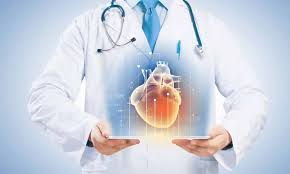Understanding Heart Diseases: Prevention and the Role of ECG Monitoring in Heart Health

Heart diseases are among the leading causes of death worldwide. These conditions, affecting the heart and blood vessels, can be prevented or managed through lifestyle changes and early detection. In this article, we will explore different heart diseases, preventive measures, and the significance of ECG monitoring in maintaining heart health.
Understanding Heart Diseases
Heart diseases encompass a range of conditions that affect the heart's structure and function. Some common heart diseases include:
- Coronary Artery Disease (CAD): Caused by the buildup of plaque in the coronary arteries, reducing blood flow to the heart.
- Heart Failure: Occurs when the heart cannot pump enough blood to meet the body's needs.
- Arrhythmias: Irregular heart rhythms that can lead to palpitations, dizziness, or fainting.
- Valvular Heart Disease: Involves damage or defects in the heart's valves, affecting blood flow.
- Cardiomyopathy: Diseases of the heart muscle, making it harder for the heart to pump blood.
Prevention of Heart Diseases
Preventing heart diseases involves adopting a heart-healthy lifestyle. Here are some key strategies:
- Healthy Diet: Eat a balanced diet rich in fruits, vegetables, whole grains, and lean proteins. Limit intake of saturated fats, trans fats, and sodium.
- Regular Exercise: Engage in regular physical activity to maintain a healthy weight, lower blood pressure, and reduce cholesterol levels.
- Quit Smoking: Smoking damages blood vessels and can lead to the development of heart diseases.
- Manage Stress: Chronic stress can contribute to heart diseases. Practice stress-reducing activities like yoga, meditation, or hobbies.
- Regular Health Check-ups: Regular visits to your healthcare provider can help monitor your heart health and detect any issues early.
The Significance of ECG Monitoring
Electrocardiogram (ECG) monitoring is a valuable tool in assessing heart health. ECGs record the electrical activity of the heart, providing insights into its rhythm and detecting any abnormalities. Regular ECG monitoring can help in:
- Early Detection: ECGs can detect abnormal heart rhythms or other signs of heart disease before symptoms occur, allowing for early intervention.
- Monitoring Treatment: ECGs can track the effectiveness of medications or other treatments for heart conditions.
- Assessing Risk: ECGs can assess the risk of developing heart diseases, especially in individuals with risk factors such as high blood pressure, diabetes, or a family history of heart diseases.
PulseNexa ECG Wristwatch: Your Convenient Monitoring Companion
The PulseNexa ECG Wristwatch offers a convenient way to monitor your heart's electrical activity. With its easy-to-use design and accurate monitoring capabilities, you can track your heart health anytime, anywhere. The ECG Wristwatch's exclusive lead wire and sensing patches ensure precise ECG monitoring, providing you with valuable insights into your heart's rhythm and overall health.
In conclusion, understanding heart diseases, adopting a healthy lifestyle, and monitoring your heart's electrical activity through ECG monitoring are crucial steps in maintaining heart health. By taking proactive measures and using tools like the PulseNexa ECG Wristwatch, you can reduce your risk of heart diseases and lead a heart-healthy life.
